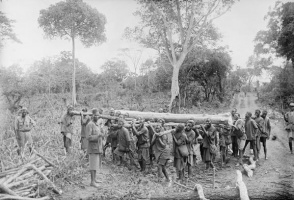Is State-sponsored International Abduction of Fugitive Criminal Defendants Always Illegal? (by Anozie Awambu)

Introduction 3.40 pm, 23 May 1960. Prime Minister Ben Gurion calls the cabinet meeting to order. " Our security services have long been looking for Adolf Eichmann, and in the end, they found him, he’s in Israel and will stand trial here ”, he says in Jewish. “ Ve macht man das? [How…how does one do that?] ”, blurts Transport Minister Yitzhak Ben-Aharon. “ That is why we have a security service ”, the Prime Minister snaps back. But was he right? Israel would go on to face a fiery backlash from the international community. Yet, did that faze Isreal? This piece blends history and law to examine whether, in some circumstances, international law allows a State to resort to abduction to advance its criminal justice machinery. It touches on such critical issues as protecting national security, anti-terrorism efforts, human rights, justice, and the rule of law. Ancient practice in statecraft With origins dating to antiquity, the ap...

